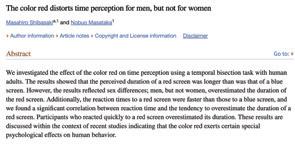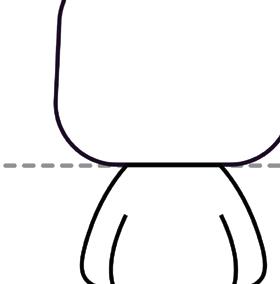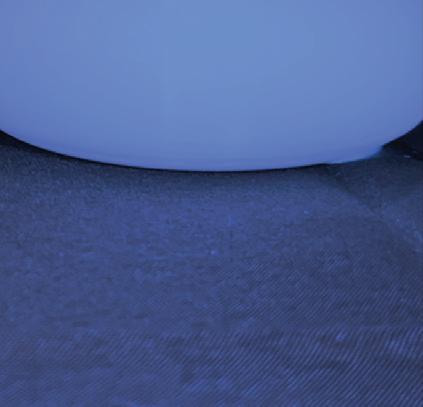Temporal Illusions





distorting our perceptions of time
 cheryl zhang
cheryl zhang






 cheryl zhang
cheryl zhang



























Low Enjoyment
Low Productivity


Low Mindfulness


As people age, they may perceive time passing quicker than in their youth. However, this phenomenon may not apply to Gen Z, whose perception of time is unique compared to previous generations. GenZ, as the first generation to grow up with technology, their excessive use of smartphones blurs




the line between virtual and reality, altering their time perception. When our subjective time passes fast, we do not have control over how we perceive time. It is a problem because it can lead to problems like decreased enjoyment, decreased productivity, and increased stress.





Visually mapping out ideas and connections to explore relationships and patterns that might not be immediately apparent.
Exploring the relationship between perception of time, dopamine and serotonin. dopamine, and serotonine.
This is the very initial mindmap where I was brainstorming ideas surrounding the subject “Fear”.
Exploring the relationship between perception of time, dopamine and serotonin. dopamine, and serotonine.

Going to 3 different places with diff ppl vs. Exact same amount of time
Staying at the same place with same ppl
Feels like less time you spent with them
Feels like more time you spent with them
Sense of passage of time disrupted
Feels
Didn't sleep well
Super "fine slicing" time/frame rate
Increase of dopamine
Overclocking
More novelty with someone
Place & Person
Shape how we relate to a place/person
Better cognitive to complete hard task, precise, rigid work ,such as math


Time perception
Doing something fun Feels
Increase
First half of day Second half of day
Creative thinking, answer(constraints)

"Fine Slicing" time Higher dopamine

High frame rate
Illusion time is passing faster than normal

More Dopamine=More Time=Functional Human
Internal Clock
Overestimate
Underestimate
Dopamine Serotonin Sense of time
Dopamine and serotonin modulate perception of time
Control our perception of time Slowdown
Mindlessness
Technology
Slower frame rate
Circadian Rythyms
Factors that change our circadian rythyms Jetlag
Light from electronic device
between dopamine, serotonin, and perception of time.
Neural activities repeated

Memory playback stored with particular rate based on when it happened during the event

Memory system Space time recorder
Distorting time through emotions/music


To stretch time with higher frame rate

work that doesnt have specific answer(constraints) such as creative work, brainstorming



Frame Rate
Human Brain refresh rate



60 frame rates per sec

Emotions
HOW TO REDUCE FEAR OF TIME PASSING TOO FAST
Cocaine
Visual Processing:Change blindness Train to increase our frame rate Games
Time pass fast
Time pass slow
Alcohol
Time speed up Dont form profound memory reminiscence effect
acceleration of time as age
lose sense of self
Doing something happy
more related to arousal system


Waiting for bus
Everything happened
Time judgement-emotional judgement
Everything feels same, nothing sticks out as surprise or interesting
Anxieties
without overthinking about how feasible the final outcome would be.




This does not mean making time for them. Instead, think of where you will incorporate these moments into your life.

Affects your overall hapiness
Purpose in Life
Psychology Happiness

Define what “time well spent” means to you Make space for these moments
Fear of running out of your time
Fear of wasting your time
Different forms Current

the daily feeling of being rushed that makes us feel overwhelmed and panicky.

thoughts about what may or may not happen in the future, which are the cause of worry and “what if” types of internal questions.


Gaming
Movie night
Shopping
Food Gym
the sense of lost time slipping away and never to return, which many people experience in a more acute way when thinking about death.
After homework
Friday night
Saturday
Weekend
Before homework
Spend happiness
Time exists
You can’t stop time from moving or slow it down
All you have control over is what you do in the future
Body: What do you like to do to feel healthy and active?

Mind: What pushes your mind in a good way?
Love: Who do you love spending time with?
Work: What work or tasks make you feel good?
Money: How do you want to use the money you do have?
Play: What hobbies or rest activities do you really enjoy?
Body Mind Love Work Mone Play
temporal bisection tasking



How play impact animals

Looking into time & aging anxiety. Getting inspirations from animals posture and cues.
Spend time on happiness
SHORT TERM
Cut out time-consuming distractions

Maximizer Satisficer
Makes perfect decision
"its good enough"

Social interaction

Money
Symptoms
Plastic surgery
FEAR OF PASSAGE OF TIME


LONG TERM
FEAR OF AGING

Feeling total loss of control- feeling as if one is going mad

Thoughts of death or dying
Inability to think or express oneself clearly- feeling disconnected with reality
Reduce eye size for less aggression Soft eyes
Animals engage in playful behaviors for the longest time
Greatest degree of neuroplasticity

Partial postures
Play posture
Dogs/animals Humans
Lowering their head
Head tilt, eyes open/ raising eyebrow
People make themself small
To stay young
Laugh more Continue to learn
Novelty memories
New motor skills
Time pass slower Mindfulness Try new things
Playful mindset Allowing urself to expand the number of outcome that you are willing to entertain

Playing a game you are not good at
Engage in something you are not proficient, but you enter because it is LOW STAKE
Animals with less play
Rigid brains that don't learn new things
Eye open, tongue out


Our subjective time passes slower when we are younger, and as we grow older, our brains process information at a slower rate than when we were younger.
This means that our ability to perceive time passing slows down and moments that used to seem fleeting can feel like they last longer. Mindfulness





As we go through more experiences and memories, our brains have more information to process and recall. This can make time seem to pass more quickly because our brains are constantly busy processing and recalling memories, and our perception of the present moment may be less acute. As we age, we tend to settle into routines and engage in less novel experiences. When we were younger, everything was new and exciting, and our brains were constantly processing new information. As we age and settle
into routines, our brains have fewer novel stimuli to process, and time may seem to pass more quickly as a result.
There is also the psychological phenomenon known as the “holiday paradox,” which suggests that time seems to pass more quickly when we are happy and engaged in enjoyable activities. As we age, we may find ourselves more content and fulfil in life, leading to the perception that time is passing more quickly.


Perception of time passes faster than







1946-1994






However, in today’s technology world, generations’ perception of time seems to flip oppositely. The digital age has significantly shrunk how GenZ perceives time. With
the constant flow of information and stimuli from social media and smartphones, it becomes difficult for them to differentiate between past and present events.


92%


Multitask while browsig internet
GenZ’s perception of time is shrunk by excessive usage of smartphones. Because the more you mindlessly scroll, the higher the brain release dopamine. Therefore, it will feel like time is passing more quickly. This is because the brain is not actively engaged in processing




new information and instead relies on the repetitive and familiar nature of the digital content. When our subjective is shorter, it can cause negative health and emotional problems like anxiety, low productivity, and even memory loss.

85%






INSTANT GRATIFICATION


Prefer automated customer service interactions over phone calls


61%
SHORTER ATTENTION SPAN





Prefer short videos under 1 minute










GenZ loses active attention to ads after 1.3 seconds less than other generations and we can see from the infographic that social media platforms start to adopt GenZ’s behaviors and adjust the social media ads.

Social media platform ads are designed to capture the attention of GenZ's short attention span.
1 3

Social media platforms have recognized this trend and have created ads that are visually engaging and easily digestible.
2 4
The attention span of GenZ is typically less than 8 seconds, which means that ads must be short and to the point.
These ads are typically designed to be mobile-friendly, with bold images and minimal text.










To better understand human perception of time, I looked into how flies perceive the world. While human eyes are capable of perceiving motion at around 60 frames per second (fps), flies can detect motion at a much higher rate of up to 200 fps.









































“Fast moving stimuli involve a high rate of change in visual information and thus stretch our perception of time.”

Our subjective time can pass slower if we have a higher frame rate because the brain processes visual information in discrete frames. A higher frame rate means that more visual information is being processed in each second, which can create
the illusion that time is passing more slowly. This is because the brain is able to process more visual detail in the same amount of time, making it feel like time is stretched out.
















1. There will be an oversize paper (timeline) with section past and future.
2. All the participants will write down their highlighted memories, or a period of time they wish to make on the timeline.

1. Participants will write down why they feel like the passage of time was fast/ slow.
2. Write down moments if they wish it could pass faster/slower. Why?







1. Participants will share what they have put down on the timeline.
2. It will be like a casual discussion where everyone can share thoughts/ ask questions.
To gather data on participants’ highlighted memories in their life.






To find commonalities on what/when/why does people find the passage of time is fast/slow.






How technology impacts memories. To analyze the main factors that made their subjective time pass fast or slow.



















People have the illusion that the passage of time is faster than normal when they are having a good time, however, when they reflect back, the memories seem very long.

People’s sensation of time speeds up when technology reminds people of repetitive daily schedules or contents. Time slows down when technology brings them back to their happy memories.
The comments received about technology are mostly positive. People look at technology as an enhancement of their good memories, omitting technology negativity.















WHAT DID THE WORKSHOP CHALLENGE? 1 2 3


How can we integrate the idea of slowing down good memories into the process of using technology?
How to slow down people’s perception of time in this hyperconnected world?



In the process of doing mindless scrolling on our phones, how/what can our memories serve as a tool to pull us out from being so hooked?

























































To draw a clearer broader between the virtual world & reality. To recognize/be more mindful of the moment of using technology.
People want to slow down good experiences and explore how to distort how people perceive time.




To explore how people’s perception of time is affected by this hyperconnected world through technology.






















































In this world, it is messed up, chaotic, and violent. Time travelers are hunted by tyrannical governments, they take advantage of never-ending power struggles between powerful entities.

The consequences of time travel create alternate timelines, leading to chaotic and unpredictable outcomes, and changing reality. So the crime rate is

super high. People would teleport to banks to rob, teleport to jail to save their friends, or even time travel to the future to look at the lottery result and buy lotteries. Everyone does whatever they want to. The jail is especially useless for prisoners, they can escape at any moment. So the government only built specific jails for those who committed extreme crimes such as murder.










People are forced to live in fear of the unknown and the unknowable. In this world, power is derived not just from physical strength or political influence, but also from the manipulation of time itself.



Only rich people own a time machine. So rich people would just become more wealthy, they use their power and time machine to steal resources and change futures. Therefore, poor people usually work for a monopoly and are controlled by them.
















A app that helps you gain control over your subjective time.
From defining problems and gathering research to developing solution concepts.








 Rsearch
Prototype
Rsearch
Prototype











To have more control over smartphone usage
To break the cycle of mindless scroll







The app includes four main features that help to slow downsubjective time.


MANAGE SCREEN TIME
CREATE OWNERSHIP
Screen Time Report & Limit





Manage & prevent the overuse of smartphones.



Customize Characters
Build a stronger sense of engagement.

INCREASE FRAME RATE

“Forcefully” redirect users away from mindless scroll.











Train mental reactions to improve users’ information processing speed.








































Exploring the relationship between perception of time, dopamine and serotonin. dopamine, and serotonine.
different character combinations.

























































After user testing from GenZs who uses smartphones for over 6 hours a day. I received some feedback to further explore.


Consider a reward system for users that spent less screen time or punishment for long screen time
Consider how to measure if you have gained more control over time after using the app.
Consider if it is a solo game or plays with friends.





















































































The reaction time report generates your cognitive abilities from your gaming performance.


A faster reaction time can make us perceive time as slower because our brain is processing information more quickly, which allows us to take in more details and perceive time as moving more slowly.
When we experience a stimulus, such as an object moving towards us, our brain processes this information and generates a response, such as moving out of the way. The time it





takes for us to process the stimulus and generate a response is known as our reaction time. Therefore, this app improves our reaction time through reaction games. Playing reaction games can help to train and strengthen our neural pathways, which can improve the speed and accuracy of our reactions over time.







The screen time report feature is an essential tool that empowers users with valuable information about their device usage.


By analyzing the user's screen time, the report provides deep insights into which apps and activities are consuming the most time. This helps users make informed decisions about how they allocate their time and prioritize their activities.
Furthermore, the screen time report provides comprehensive data about the frequency of device unlocks and the amount of time spent on specific apps. This data allows users to identify patterns and make changes to reduce excessive use of certain apps or activities.
One of the most intriguing features of the screen time report is its ability to analyze game performance. By tracking the user's reaction time during gameplay, the report provides valuable insights into their cognitive abilities and performance. This information can be used to identify areas for improvement and develop strategies to enhance reaction time and overall gaming performance. This information can be used to identify areas for improvement and to develop strategies for enhancing reaction time and overall gaming performance.









The subjective time report calculates the subjective time accuracy for each user.





The app measures users’ reaction time during gameplay, which can indicate their cognitive processing speed and responsiveness. It also tracks their screen time, capturing how much time they spend actively using the app. By analyzing this data, the app generates a report that compares the users’ current reaction time and screen time with their previous performance.
Based on this analysis, the app calculates the subjective time accuracy for each user. If the users’
reaction time has declined, and their screen time has increased, the app may show that their subjective time has “shrunk” by a certain percentage. For example, if a user’s reaction time has slowed down by 10% and their screen time has increased by 20%, the app may estimate that their subjective time has shrunk by 15%.





This subjective time accuracy report provides users with valuable insights into how their cognitive processing speed and time perception may have
changed over time. It helps users become more aware of how their in-game performance and screen time habits may impact their perception of time. This feature also encourages users to reflect on their screen time usage and strive for a healthy balance between virtual and realworld activities.







Users can create their own virtual avatars forn different apps that they have set on screen time limit.


Users can choose from a wide range of customization options, such as changing the character's color, hair style, eye shape, mouth shape, and even weapons or accessories. This allows users to express their individuality and make their characters truly their own. The customization options are not only limited to the initial creation of the character, but also evolve over time based on the user's in-game performance and screen time usage. As users progress through the app and achieve milestones
or complete challenges, they earn rewards in the form of new customization items. For example, if a user wins a battle or completes a difficult level, they may unlock a special weapon or a unique outfit for their character. Similarly, if a user spends a certain amount of time playing the app, they may receive exclusive customization options, such as rare color palettes or hairstyle options.







The mystery weapons will be unlocked as the user’s subjective time increases by 5%.the app and achieve milestones










If the users are scrolling through TikTok, and have reached their screen time limit. A notification will pop up, inviting you to change your phone orientation. Users will receive a 30-second randomized



game that trains their reaction speed, which helps to increase the frame rate. Here, TikTok being the top enemy on the rank will come and attack you at a faster speed.




When the game ends, the app will assign you a number of slo-scrolls based on your performance. Now, when you go back to tik tok, the 3 scrolls will be in slomotion, and the app will be locked after the 3 scrolls.






















A cafe that helps people enjoy more time in reality.
Must have their phones for every meal

Out of 2,000 people surveyed, 35 percent of participants aged between 18 and 25 admitted to having the urge to use their phones for every meal they eat. This is an issue because when people scroll and eat simultaneously, they get an instant double hit of dopamine, causing them to perceive time faster.





When you're engaged in multiple tasks, your brain has to split its attention between them, which can make it harder to fully focus on either one. As a result, you may not fully register the passage of time or the details of what you're doing.




Scrolling through social media or watching TV while eating can limit the sensory input you receive, making it easier to tune out and lose track of time. Without enough variety in your sensory experiences, time may seem to pass more quickly.



DOUBLE DOPAMINE HIT
SUBJECTIVE TIME PASSES FASTER












Scrolling and eating at the same time can lead to health problems such as over eating, poor digestion, and acid reflux.

I really miss my childhood. When we were constantly exposed to novel experiences and learning new motor skills. Inspired by that, I designed Slo-Cafe. A collection of dinnerware that stretch our subjective time through novel eating experiences.

It’s commonly understood that dinnerware is intended to aid in efficient eating. However, I was devoted to exploring unconventional forms that encourage users to try inefficient eating.

After many iterations of observing patterns in how humans interact with their food and dinnerware. I explored forms that require the use of both hands, eliminating the usage of phones during meals.



Slo-Cafe includes a utensil that features a single curved tine pointing upwards, which adds a more challenging eating process, by requiring us to move our mouths in accordance with the angle of the curve.









The utensil is double-sided with a wavy handle that invites users to be creative in ways of holding them.

A bowl with a small opening that adapted the shape of the spoon. So users can easily get all the food out of the corners. Ensuring that they don’t miss any of the delicious bites.









The cup has a negative accent at the bottom where it rests on the bowl. Users must hold onto the cup while they eat to prevent it from tipping over.

An elegant spoon is included with the plate set for users to add any desired flavors to their beverages.









For those who want to enjoy a smaller portion of a Michelin-like meal, here is a plate with no edges, allowing food to be beautifully presented. However, users should be mindful to prevent the food from sliding off the plate.


































































The app is as simple as setting up a workout app. Before you start your meal, you will select from the five main food categories.

Next, you can set a desired eating speed. After the 3 seconds countdown, relax and begin your meal.
The app uses motion-tracking sensors accelerometer, and gyroscope to monitor your eating speed. When you exceed your target speed, the app will buzz and remind you to slow down.

















Now, I want to see how they work in real life. I offered participants two sets of different dinnerware. With a vibrometer app attached to their wrists, as a replacement for slo-mo to track their movement speed.
















































